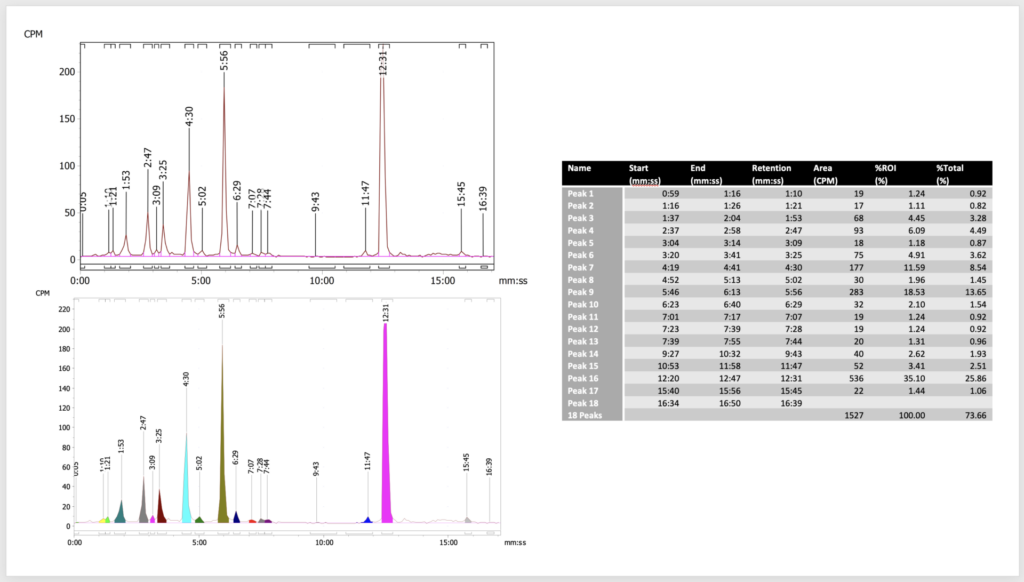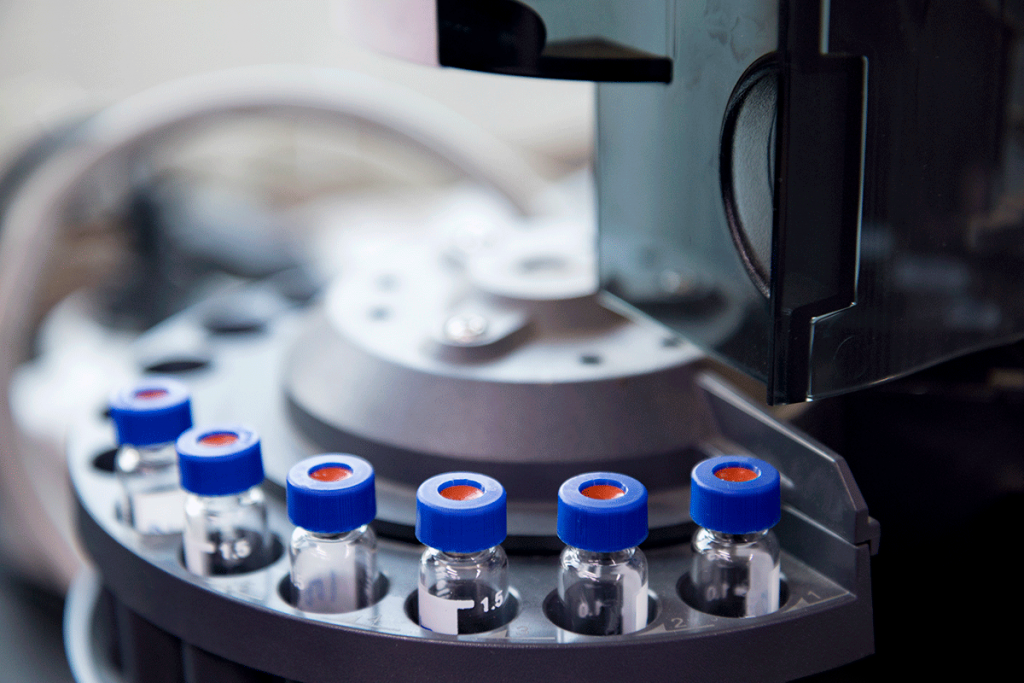Our Services
Please click the +-sign to read more.
• In vitro Metabolism
The lead optimisation phase might include soft spot Met ID in human and toxicity or pharmacological species to understand metabolic instability. When choosing a candidate drug to progress through development phase generation of a more complete in vitro cross species Met ID data set is crucial. It is the best tool at this stage to understand similarities and discrepancies between human and toxicity species, in terms of metabolic pathways and as step 1 in a so-called ”Metabolites in Safety Testing” evaluation.
We perform in vitro Met ID and metabolic stability (in vitro CLint) designed for candidate drug selection or on candidate drugs prior to FTIM. We also know how to evaluate existing in vitro data and how to proceed mitigating risks of having a MIST issue later on.
The in vitro metabolic stability and Met ID can be performed in different metabolic systems, species and gender depending on the question.
• Metabolite profiling and characterisation in non-clinical species
Met ID in non-clinical species early on can be performed to confirm or retract potential discrepancies between species in vitro. The plasma metabolite profile (circulating metabolites) many times reflect the metabolic pathways in vivo to a larger extent than in vitro data despite the fact that not all metabolites formed and excreted are present at all or at detectable levels in plasma.
We perform in vivo Met ID studies as part of MIST evaluation but also exploratory and as problem solving activities. We handle blood, plasma, urine, feces, bile, tissues and other body fluids (e.g. saliva, humour).
• Human metabolite profiling and characterisation (circulating and excreted metabolites)
The most important data is Met ID in vivo in human. First available samples comes with the SAD study. It is a single dose but still very useful particularly if there is a need for data as soon as possible. Sometimes also from a dose perspective SAD samples are more useful. In addition to plasma, urine Met ID is an important tool for some compounds to get a better overview of the metbolic pathways and often supports the Met ID in plasma where lower levels might be seen.
From MIST perspective repeated dose studies are used where the metabolite profile in MAD samples “set the scene” of which metabolites require adequate exposure in toxicity species.
We perform Met ID in FIH samples. We can guide you through the need for your project.
• MIST analysis (exposure comparison between human and non-clinical safety species)
The exposure comparison of human metabolites between human and toxicity species is performed to understand if human metabolites are adequately exposed in the toxicity species.
To perform and evaluate exposure comparison in the best way several aspects have to be considered.
We know MIST analysis and perform exposure comparison utilising samples from repeated dose studies. We can guide you through the best approach for your project.
• Radiolabel-assisted metabolite profiling and characterisation in samples from human and preclinical A(D)ME studies
Radiolabel-assisted metabolite profiling is important to achieve a more quantitative understanding of the metabolism and excretion than is possible with other detection methods.
As experts in radiolabel-assisted metabolite profiling and characterisation we are aware of all the pitfalls related to such applications.
We can support you in:
- advice on labelling position from a metabolic perspective in collaboration with radiochemists
- advice on concentrations in vitro, doses in vivo including specific activities required to obtain useful data
- LC-MS method development suitable for both on-line and off-line radioactivity monitoring (RAM)
- recovery-based sample preparation development for any biological matrix
- recovery determinations
- metabolite profiling using on-line (parallel coupled) RAM or fraction collection to 96-well LUMA plates with offline RAM in TopCount.
- metabolite characterisation using HRMS based on radiochromatograms
- MS/RAM response factor determinations in any matrix/sample
- radioactivity determination in organs from animals dosed with 14C- or 3H-compounds.
- outsourcing in life ADME studies
- Full Met ID in samples from A(D)ME study performed in any species (rodent, non-rodent, or human)
Against this we can support you in any Met ID study or problem-solving activity utilising 14C or 3H.

• Non-GLP bioanalysis

